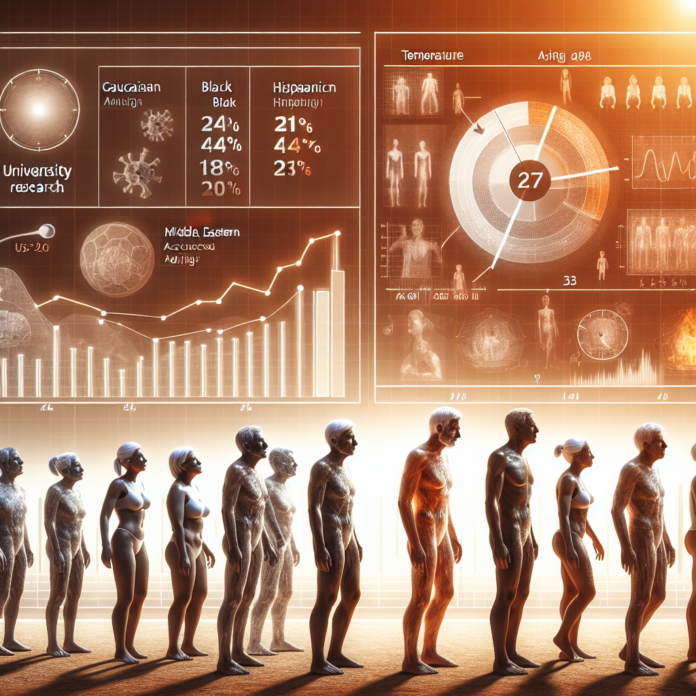Extreme Heat May Accelerate Aging in Older Adults According to USC Study
Living in Extreme Heat May Accelerate Aging Process in Adults Aged 56 and Older, USC Study Suggests
A recent study conducted by researchers at the University of Southern California (USC) has uncovered alarming evidence that prolonged exposure to extreme heat can significantly accelerate the aging process in adults aged 56 and older. The findings suggest that individuals in this age group may age as much as one year faster than their peers who are not subjected to such harsh environmental conditions.
Study Overview
The USC study analyzed data from a diverse group of participants, focusing on how extreme temperatures impact biological aging markers. Researchers utilized advanced techniques to measure indicators of aging, including telomere length and epigenetic changes, which are known to influence the aging process at the cellular level.
Implications of the Findings
The implications of these findings are profound, particularly as climate change continues to drive increases in heat waves and extreme weather events. For older adults, who are already at higher risk for a range of health issues, the compounded effects of heat exposure may lead to accelerated aging and increased susceptibility to age-related diseases.
Broader Health Risks
In addition to the potential for accelerated aging, extreme heat poses numerous other health risks, including dehydration, heat exhaustion, and heatstroke. Older adults are particularly vulnerable to these conditions due to factors such as decreased thermoregulation and the presence of chronic illnesses.
Protective Measures
Given these findings, it is crucial for older adults to take proactive measures to protect themselves from extreme heat. Recommendations include:
1. **Staying Hydrated**: Drinking plenty of fluids, particularly water, to maintain hydration levels.
2. **Staying Indoors**: Limiting outdoor activities during peak heat hours and seeking air-conditioned environments whenever possible.
3. **Wearing Light Clothing**: Choosing loose, light-colored clothing to help stay cool.
4. **Monitoring Health**: Regularly checking in with healthcare providers to manage any underlying health conditions that may be exacerbated by heat.
Conclusion
As climate change continues to impact weather patterns, understanding the connection between extreme heat and the aging process becomes increasingly important. The USC study serves as a crucial reminder of the need for comprehensive strategies to protect vulnerable populations, particularly older adults, from the health risks associated with rising temperatures. Addressing these challenges not only promotes healthier aging but also underscores the importance of climate action to safeguard public health.


